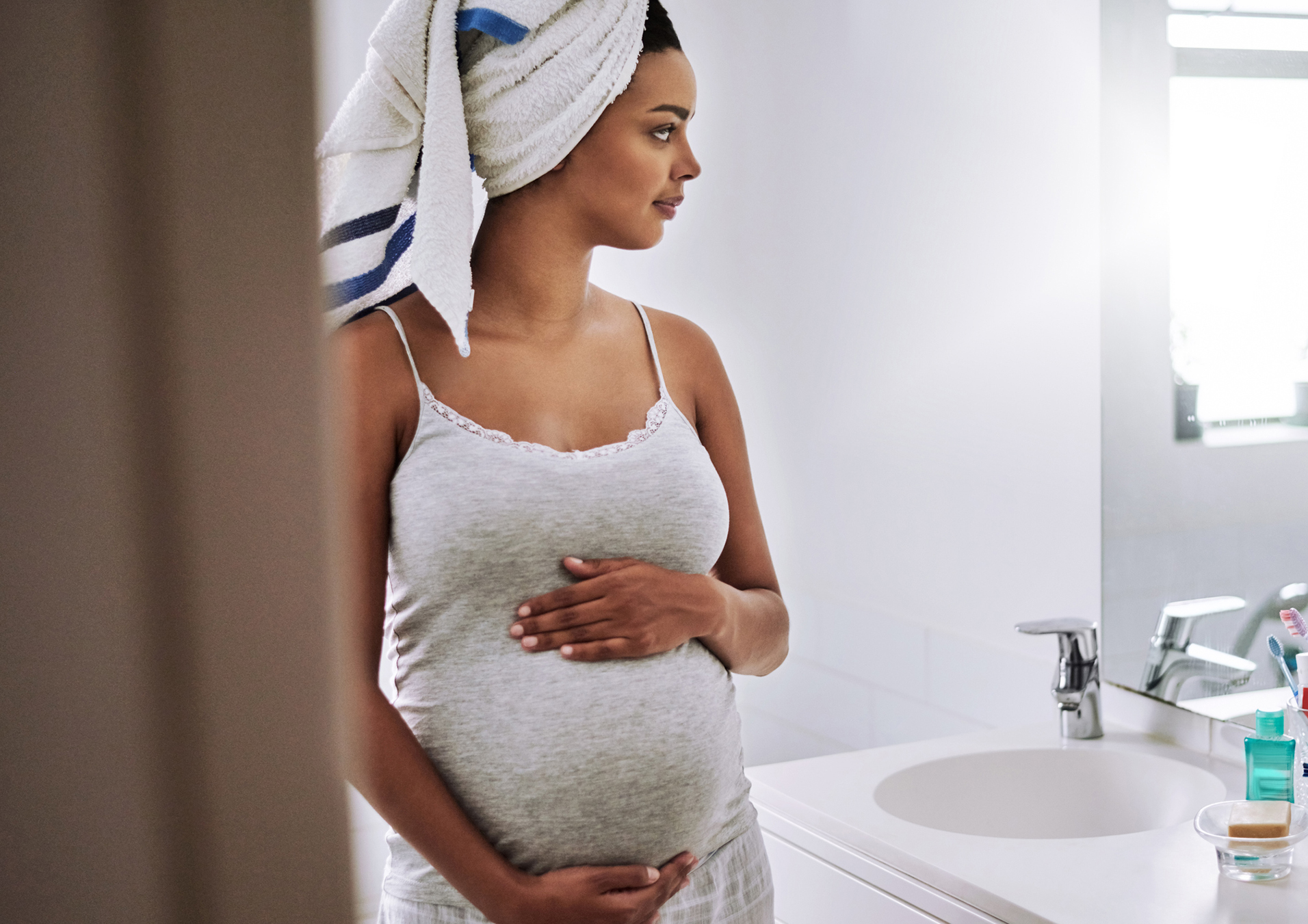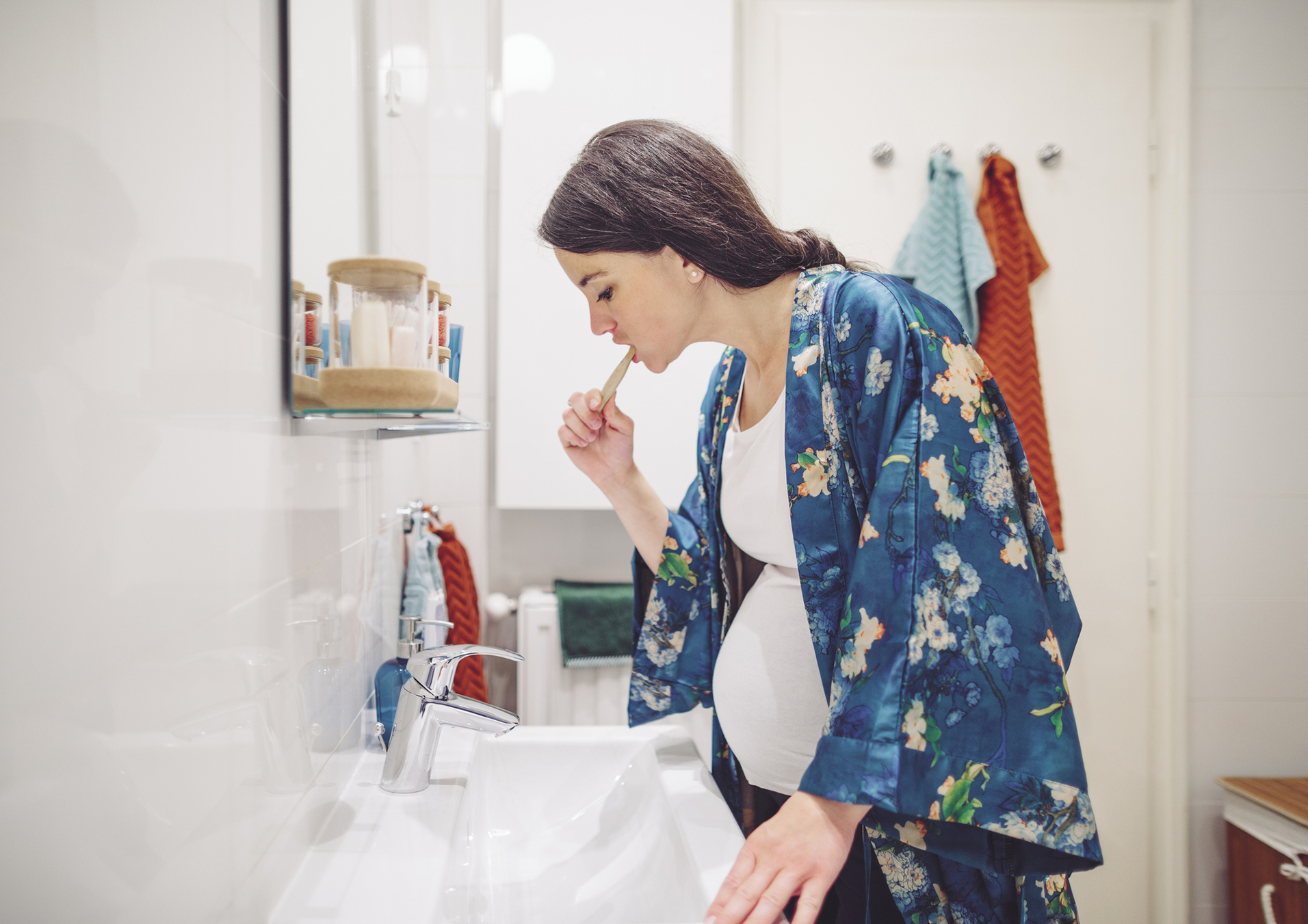7 surprising body changes that happen during pregnancy
We all know you grow a bump and your boobs get bigger, but what else happens when you're pregnant?

We all know you grow a bump and your boobs get bigger, but what other body changes in pregnancy can you expect?
Pregnancy involves so much more than just your baby growing inside you; it affects every system in your body. Changes can occur from early pregnancy, and for some women they continue all the way through.
Here, midwife Anne Richley explains some of the more unusual changes you can expect throughout your pregnancy - we reckon more than a couple of them will surprise you!
Your digestive system plays up
In the first few weeks of pregnancy you might feel constipated. This is because the hormone progesterone relaxes the muscle in the intestine, causing it to become 'sluggish'. Drinking plenty of water and improving your circulation generally with light exercise, such as walking, should help.
This relaxation of the muscles is also responsible for more frequent heartburn or indigestion. Also, as your baby grows, your stomach tends to become more squashed, which can make any heartburn worse as your pregnancy progresses. Interestingly, it's the same relaxation of muscles that's also responsible for varicose veins and haemorrhoids. This is because the walls of the blood vessels relax and then 'bulge' with the increase in blood volume!
You get thicker hair while pregnant
During pregnancy, you may find your hair appears to be thicker than usual. This is because, thanks to pregnancy hormones, mums-to-be typically lose less hair each day than they usually would, leading to increased volume. Some women who already have thick or coarse hair find that it becomes particularly unmanageable and choose a dramatic re-style - the perfect excuse for a pre-baby makeover!
After your baby is born, though, the tables turn and you may feel that you're losing your hair at an alarming rate. However, for most women, it's simply a case of losing the hair you'd normally have shed over the previous nine months - the hair loss is usually only temporary, and no cause for concern.
Parenting advice, hot topics, best buys and family finance tips delivered straight to your inbox.
Your skin pigments change
Some women find that their skin positively 'glows' in pregnancy, but others discover that they have spots for the first time in years, or their skin becomes really dry.
Around 90 per cent of women find that the pigmentation in their skin increases during pregnancy which, for some, means the colour of their freckles becomes more pronounced, while others develop the 'butterfly mask of pregnancy', or chloasma. This is when the skin develops a brownish stain, usually across the nose and cheeks - but rest assured, it fades after the birth. Many women also develop a brown line that stretches from the pubic area to the navel. This is called the linea negra and will fade after your baby is born, although it never disappears completely.
Your body shape is altered
You already know that pregnancy inevitably leads to weight gain, but women vary hugely in how much weight they put on in pregnancy - the average is 9-13.5kg (20-30lb). The most important thing is that you eat a healthy, balanced diet. Some mums-to-be have no appetite in the first three months, due to sickness, while others feel constantly hungry as their metabolism increases because the body is working harder to provide for their growing baby.
You'll probably notice a dramatic increase in the size of your breasts, too. They'll grow throughout pregnancy, but the biggest changes will be in the first three months. They'll probably feel more sensitive, lumpy and the colour around the nipple (areola) will darken, too.

Your gums are prone to bleeding
The high levels of progesterone you'll experience during pregnancy can make your gums more vascular and increasingly prone to bleeding. If this happens, continue to brush your teeth regularly using a soft toothbrush. Because of the changes, gums can feel soft and spongy and therefore more prone to infection, so good dental hygiene is essential.
You’re also entitled to free NHS dental treatment if you're pregnant when you’re accepted for the course of treatment (although you must have a MATB1 certificate (PDF, 102kb) issued by your midwife or GP or a valid prescription maternity exemption certificate (MatEx) to claim this).
Your heart and lungs have to work harder
There's an increase in the amount of blood circulating your body during pregnancy, as well as an increase in your weight, so your heart is having to work harder. Towards the end of pregnancy, this extra work may result in a rise in your blood pressure, whereas in early pregnancy it can drop, sometimes making you feel light-headed. You may suffer frequent nosebleeds during pregnancy, due to an increase in blood supply and nasal congestion.
As mentioned above, varicose veins are also common, because of the sluggish circulation caused by pregnancy hormones. Don't sit with your legs crossed, but elevate them when you're sitting down. Gentle exercise will generally help to perk up your circulation. You may experience breathlessness, which can be caused by your womb pressing on the diaphragm, which restricts your breathing, or your lungs being unable to expand fully due to the increasing size of your uterus. Severe anaemia may also cause breathlessness, with palpitations and tiredness, so make sure you have the blood test that detects this at your antenatal check-ups.
You have more aches and pains
Pregnancy sees huge changes in your muscles and bones which, in turn, account for many general aches and pains. The increase in pregnancy hormones makes the ligaments and joints soften. One of the benefits of this is that the pelvis can widen a little, to help accommodate your baby during the birth, but this 'laxity' in the joints may be a major cause of backache, as can the change in posture as your bump grows.
Round ligaments found on each side of the uterus hook it to the inside of the abdomen and hold it in place. As the uterus grows, the ligaments are pulled and stretched, which most often accounts for the aches and pains on the lower sides of your bump. The combination of unstable joints, your growing baby and changes in your posture can result in pain. You might feel this in the lower back, hips, groin and lower abdomen, radiating down the inner thighs.
Trusted, informative, and empathetic – GoodToKnow is the ultimate online destination for parents. At GoodtoKnow, our mission is 'simple': we're trying to make sense of parenthood. On the site, you'll find everything you need for a happy, healthy family life. Our huge archive of content includes more than 18,000 articles and 1,500 how-to videos. These include expert-backed advice features on parenting, dealing with relationship changes after having a baby, self-care for mums and managing your family finances. We also feature tried-and-tested product reviews and buying recommendations for every stage of family life - from prams and Moses baskets to birthday gifts and top toys.